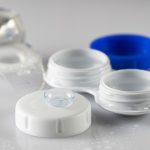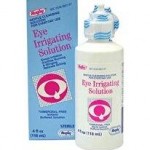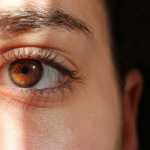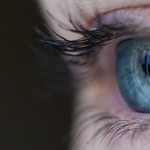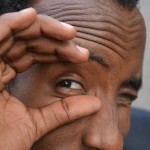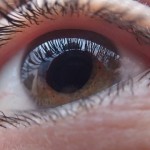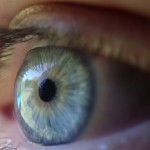Photonic Contact Lens to Test Blood Glucose Levels, Treat Retinopathy
New technology that allows diagnosis of diabetes and treatment of diabetic retinopathy just by wearing 'Smart Light-emitting diode (LED) Contact Lens.' Contact lens that tests blood sugar levels.
Lower HbA1c May Not Prevent Diabetes Complications
According to Mayo Clinic researchers, the HbA1c level targeted by physicians may not actually lower the risk of kidney, vision and neuropathy complications for...
Nationwide Recall of Eye Wash and Irrigating Solutions
There is a reasonable probability of a potentially sight-threatening eye infection through the use of a contaminated eye wash or irrigating solution product. United Exchange...
New Method Prevents Retinal Transplant Rejection, May Treat Retinal Diseases
A new treatment that prevents retinal transplant rejection using immune-matched stem cells may be used to treat age-related macular degeneration and other retinal diseases. Stem...
FDA Approves Eylea to Treat Diabetic Retinopathy and DME
Breakthrough therapy designation granted to Eylea for the treatment of Diabetic Retinopathy with Diabetic Macular Edema. Eylea is administered by a physician once a...
New Treatment Target for Diabetic Retinopathy
New target for reducing dysfunctional blood vessel development in the eye in a condition called diabetic retinopathy, the leading cause of blindness in working-age adults, has been found.
Metformin May Reduce Risk of Open-Angle Glaucoma in Diabetic Patients
A new study finds that taking the medication metformin hydrochloride was associated with reduced risk of developing the sight-threatening disease open-angle glaucoma in people...
Vision Loss Due to Diabetes Rising Globally
Blindness and visual impairment due to diabetes is rising significantly around the world, but people from certain regions are experiencing more vision loss than...
Nerve Damage in Type 2 Diabetes can be Detected in the Eye
A 10-minute eye exam can tell whether or not a person with type 2 diabetes has nerve damage, according to new information.
Study Finds Hidden Risk Factors for Cornea Condition
A large new study, published in the journal Ophthalmology, reveals previously unknown risk factors associated with keratoconus, an eye condition that causes serious progressive...
Lucentis Effective Against Diabetic Retinopathy
Results of a recent study show that Lucentis is highly effective at treating proliferative diabetic retinopathy and may be an alternative to laser therapy....
Discovery Could Prevent Diabetic Retinopathy, Blindness
Scientists have round a therapeutic target for diabetes-related blindness that could prevent one of the most common and debilitating side effects of diabetes -...
New Eye Pressure Test Could Prevent Loss of Vision
University of Missouri School of Medicine researcher recommends new approach for checking eye pressure which can reduce risk of vision loss or blindness in...
Free Tool Predicts Blindness and Amputation Risk in Diabetics
Researchers from University of Nottingham have developed software that helps predict the risk of blindness and amputation in people living with type 1 or...
Study: Nerve Damage Precedes Diabetic Retinopathy
New findings about the development of diabetic retinopathy represents a shift in the long-term understanding of these diabetes complications. A University of Iowa-led study of...
Discovery Predicts Who Responds Best to Game-Changing Diabetic Eye Disease Treatment
Researchers have found a biomarker that predicts which diabetic patients will respond best to a common diabetic complication.

